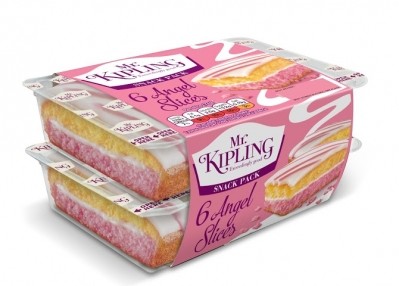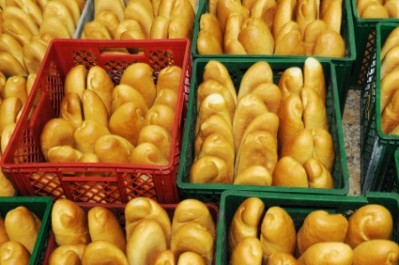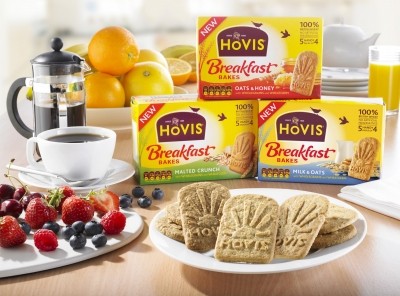Premier Foods explores marketing beyond shoestring, Mr Kipling ‘category blur’

Discussing the strength of the firm’s brands, Clarke told The Telegraph yesterday that there was widespread “fondness” for them, and the firm had an opportunity to move from ‘fondness’ to ‘like’ to ‘love and can’t do without’.
Premier unveiled a £50m (€60m) war chest this morning, that it said would double its marketing spend in 2012 in a bid to restore growth, targeting consumers with with its largest ever concentrated TV advertising push.
CEO Michael Clarke said: “The awareness and popularity of our power brands remains strong, but it’s clear that we haven’t invested enough in marketing compared to our competitors. I’m committed to changing that.”
These comments are a far cry from an investor seminar last May, when Premier showed City analysts a presentation including a slide entitled ‘Marketing on a Shoestring’, and extolled the free PR virtues benefits stemming from the fact that Victoria Beckham was a marmalade fan.
Bakery and snack brands Ambrosia, Hovis, Mr Kipling are central to the new investment strategy, alongside Bisto, Oxo, Sharwoods and Loyd Grossman.
Hovis stuck in bread ‘slugfest’, analyst
Quizzed as to whether the movement from “shoestring” to “major TV advertising push” across fewer categories was a wise policy, Investec analyst Martin Deboo told BakeryandSnacks.com: “It’s a general approach taken by most of the best-in-class consumer goods companies like Reckitt Benckiser, British American Tobacco, etc.”
So it makes absolute sense, and particular sense for Premier because given they want to dispose of businesses and brands – having a view on where their destiny lies, it’s a sensible thing to do.”
Panmure Gordon analyst Graham Jones told this publication: “Standing behind the main brands makes sense, but I don’t know how much of marketing spend is diverted from the tail of the business and how much is new money.
“But clearly their [Premier's] previous strategy hasn’t worked. They haven’t had consistent enough innovation and marketing to sustain pricing power with the retailers.”
But did Premier have sufficient fire power to make a splash in marketing terms and boost brands such as Hovis, given stiff competition in the bakery segment with large players such as Warburtons and Kingsmill (Allied Bakeries, Associated British Food)?
Deboo said: “They have the firepower as they’re one of the three major players, so can afford a decent marketing spend. The problem is for Hovis and the UK bread category is that it’s a terrible industry.
“It’s a power brand for Premier, because I suspect it’s an acknowledgement of the fact that no-one else would buy it from them – in objective terms it’s very hard to see how they can have a profitable future in bread.
“There’s too much capacity in the industry, Warburton’s is the differentiated player with superior product quality, and we believe greater cost efficiencies, etc.,” Deboo added.
January 2012 statistics from Mintel support Deboo's comments, with the research firm noting that "Warburtons appears untouchable as the UK's biggest pre-packed bread brand [within a £1.93bn sector] accounting for three in every ten pounds spent in the sector. However, sales have faltered for the Bolton bakery over 2011."
However, Mintel reported flat sales for Hovis in 2011 (due to its temporary Tesco delisting last year) with a 23% market share, while Kingsmill saw growth that pushed its segment share up to 23%.
Deboo added: "So it’s a slugfest for the number two position between Hovis and Kingsmill – and the former is more than a match in terms of quality, but the problem is that ABF is a diversified group without any of the financial problems of Premier, with deep pockets. So they can tolerate periods of low profitability much better than Premier can.”
Let kids eat cake, not chocolate…
Speaking to The Telegraph, Clarke also discussed the potential benefits of “category blur”, with one example with potential in this direction given in the interview a Mr Kipling Fruit Salad Mini-Battenberg cake.
Category blur aims to leverage brand strength by gaining sales across new consumption channels; examples of successful products in this respect include Premier’s own brand Branston (which moved into baked beans in 2005) and Cadbury’s trifles and mousses.
Clarke said: “Imagine if you had these on the shelf instead of a chocolate bar? You’d probably choose this for your son over a chocolate bar…and imagine the margin.”
So did Deboo see promise in this strategy? “It’s difficult to say and it depends on the exact product. Cakes into confectionery is seen as quite a challenge, given the appeal of confectionery and the marketing intensity of it. 'Category blur' in principle I don’t have a problem with – but that particular one may be difficult,” he said.
Asked the same question, Jones said: “By confectionery I assume they mean single-serve cakes sold aside Mars bars, things like that. There is mileage in that – but whether it will transform the overall performance remains to be seen.
“Obviously, the bulk of the cake category seems to be bogged-down in constant aggressive promotional activity. But it seems a sensible thing to try, although I don’t know how successful it will be.”
June 2011 statistics from Mintel reveal that the wrapped cakes and cake bars market has struggled to maintain momentum since 2009, with consumers turning away from ambient cakes to unwrapped cakes and other snacking categories.
According to the research firm: "Small/individual cakes and cake bars are continuing to dominate the market in terms of sales, although the segment has seen a drop in growth owing to a decline in pre-packed cakes and slices."










